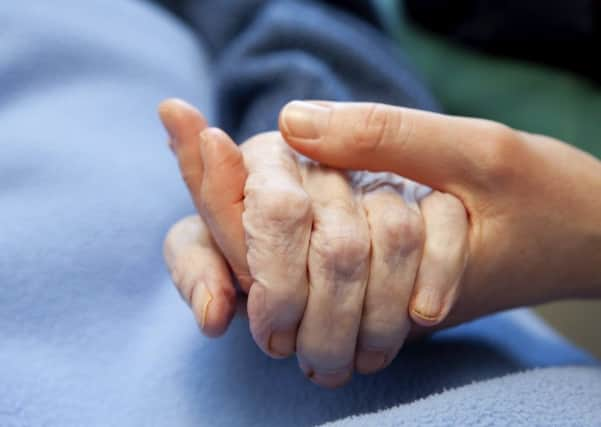Amanda Ward: Assisted dying in America shows us the way forward


Six states have assisted dying: Oregon, Washington, Vermont, California, Colorado and Montana.
Oregon was the trailblazer, introducing legislation in 1997, which has enabled around120 people a year to choose how and when to end their life. Other states have used the power of referendums and ballots to support a change in the law.
Advertisement
Hide AdAdvertisement
Hide AdIn these states, the law allows adults diagnosed with a terminal illness, who are expected to die within six months, to make a request for medication to end their life. There are rigorous safeguards to make sure the law is used only for those who are fully informed and making the choice themselves,.


The person must make two oral requests to their attending physician, separated by at least 15 days. The physician must assess mental capacity to ensure the patient is choosing freely and intentionally, and the physician must also inform the patient of alternative options. A consulting physician must then certify the diagnosis and prognosis, the patient’s mental capacity, and voluntary nature of the request before the medication is released to the patient.
Either physician may request that the patient also undertakes a mental health evaluation, if they are concerned the patient’s request is affected by psychiatric or psychological considerations. In California, the individual must also provide the physician with a written request, including signatures from witnesses.
The death itself is swift, painless and peaceful – the good death we would all hope for ourselves.
One recurring topic from my meetings was around the responsibility on medical practitioners to deliver a duty of care when all other reasonable medical interventions have been tried and failed. Surely there is a professional duty to support that patient to end their life with dignity? Where oncologists, palliative care specialists and anesthesiologists have done everything to make the patient comfortable, but the person is still dealing with an incurable condition or experiencing continuous pain, it is incumbent on the medical profession to explore the patient’s full range of options, including assistance to take their own life.


Perhaps the most surprising finding from the visit was that once assisted dying is made legal, pragmatism follows. Patients, doctors and most profoundly, hospices and palliative care professionals, have open conversations with their patients, planning for a good death together.
Many hospices and palliative care doctors, who were historically opposed, now see the benefits and choose to respect the rights and requests of their patients when they say “I’ve had enough, now is my time to go”. Having that conversation ensures the patient has full control and they take great comfort in knowing a process is in place, should they take the decision that they no longer wish to live a life of suffering.
The critical aspect is around quality of life. Longevity in itself is unwelcome to most people if it comes with disease, life-limiting conditions and suffering.
Advertisement
Hide AdAdvertisement
Hide AdThe data from these states shows the introduction of assisted dying legislation has not led to a surge in people taking the option to end their life. In Oregon for example, over the last 20 years, less than 0.2 per cent of deaths are by assisted dying.
There is much for us to learn and Friends at the End believe medically assisted dying should be available to all mentally competent adults with either a terminal illness or an incurable condition causing hopeless and unbearable suffering with no reasonable alternative to relieve it, provided this is their own persistent request.
We have a Cross Party Working Group actively looking at the issue and hope in the future to facilitate a change in the law to allowassisted dying in Scotland.
Amanda Ward is Chief Executive, Friends at the End